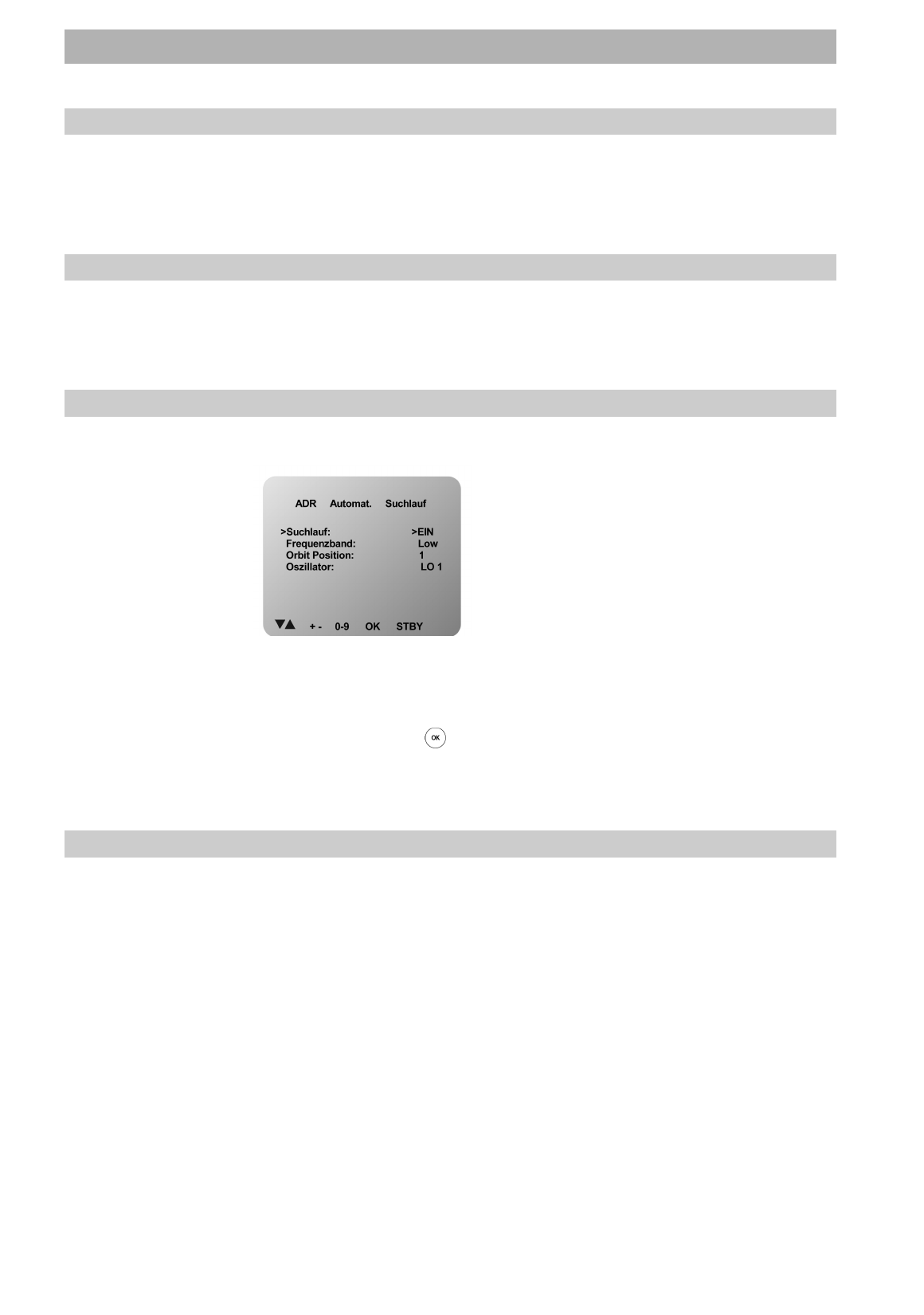
Initial settings
29
LED brightness
Here you can increase the brightness of the LED display. This may be necessary,
for example, if bright light is beaming down on the receiver and the LED displays
are no longer easy to read. In this case set the display to “High“ setting.
Factory preset:
Low
Remote control handset
The receiver contains command sets for Kathrein remote controls with both 24 and
26 keys. The remote control included with the receiver has 26 keys and this is the
predefined command set on delivery. Hence leave this setting unchanged as
“
26 keys
“ (factory preset).
ADR search
In this menu entry the criteria can be set up for the automatic station search for
ADR radio programmes.
ADR radio programmes are currently radiated only from the Astra satellites in the
lower frequency band (low band). The above setting is already set up accordingly.
If you want to switch off the automatic search run, set the “Search run” menu entry
to “OFF”.
Save the setting with the
key (press twice).
The search run starts when the receiver is switched into standby from “ADR radio”
mode. After the search run the receiver switches to standby.
Oscillator frequency
The satellites radiate their programmes in a frequency range that satellite receivers
are unable to process. In the receiving system (known as the
LNB
-
L
ow
N
oise
B
lock converter or
LNC
-
L
ow
N
oise
C
onverter) this frequency is converted into a
lower frequency that can be processed by satellite receivers.
The satellite transmission frequencies lie in the following ranges:
10700 ... 11700 MHz Low-band
11700 ... 12750 MHz High-band
The receiver‘s input frequency range, however, lies in the range: 920...2150 MHz
Conversion of the higher frequencies into a lower frequency is achieved with the
aid of the oscillator frequency (LO frequency). Various oscillator frequencies are
used for the conversion according to the satellite frequency range and type of sys-
tem.
For Astra and Eutelsat receiving systems, this is generally 9.75 GHz (9750 MHz)
for the lower frequency band (low-band) and 10.6 GHz (10600 MHz). for the upper
frequency band (high-band). Older receiving systems still operate in the low-band
region with 10 GHz oscillator frequency.
The receiver calculates the frequency onto which it needs to tune by subtracting


















